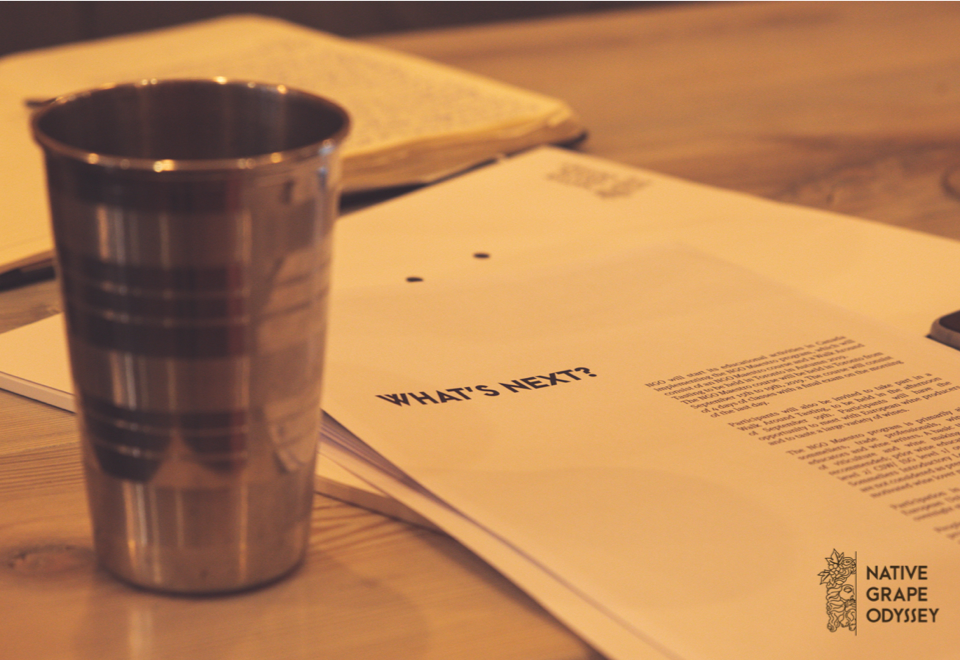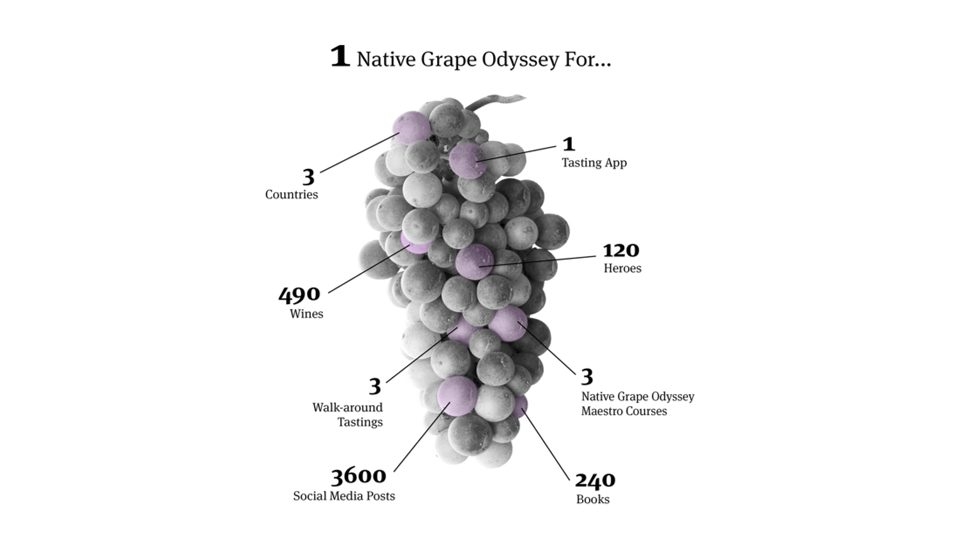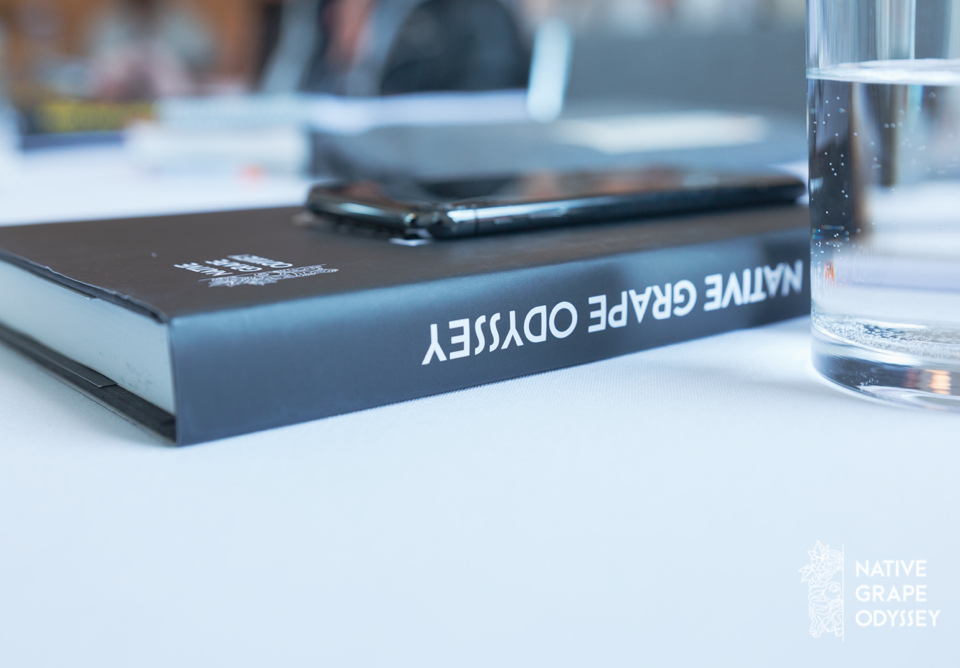
Native Grape Odyssey débarque à Toronto et dévoile trois stratégies pour sensibiliser les Canadiens au vin européen
September 30, 2019
How to choose the right tool for the job: The Native Grapes Academy project isn’t sheepish about being bookish
October 14, 2019The Native Grape Odyssey (NGO) Maestro course organized by the European program Native Grapes Academy (NGA) in Toronto, from September 15th to the 19th 2019, demonstrated how education breeds enthusiasm. 40 members of the Ontario wine industry joined distinguished guest lecturer Daniele Cernilli for a passionate exploration of the native grape varieties of Italy and Spain. Combining theory lectures, guided tastings and his own personal experience, Cernilli showed candidates that detailed learning about a grape or region can really bring it to life and gives it a story that allows you to share this life with others.
19th September in Toronto saw the inaugural Native Grape Odyssey (NGO) Maestro Course end with a group of newly appointed European Quality Wine Heroes receiving their certificates and celebrating by sharing their new passion for Italian and Spanish wines at a large Walk-Around Tasting. The five-day series of lectures and guided tastings followed a rigorous path through the regions of Italy and Spain to explore in great detail the native grape varieties in these Mediterranean regions.
The educational approach when developing the Maestro Course was to always remain relevant and give students the most up-to-date and detailed information. In addition, the certification of candidates would involve both a multiple-choice exam, and a tasting paper designed not only to test the depth and breadth of knowledge acquired during the course, but also their application of this theory during the assessment of wines. The aim of this approach is to directly connect the expression of the grape and wine to the territory and thus demonstrating why particular native grapes have found their home there.
Each theory session focused on a specific territory, first outlining its geography, climate, dominant soils and geological factors. From here the discussion turned to the autochthonous grapes of the area, in order of their dominance in terms of planting or associated quality wines. Whilst for many courses this would be enough, the Maestro Course deepens students understanding by adding historical, cultural and gastronomic elements. Furthermore the personal insights from Cernilli’s extensive experience in the Italian territories, combined to give students a unique educational experience and broad perspective of European Quality Wines. As Kim Gertler, director of communications for CAPS Ontario commented, “[Cernilli] frequently provided extremely accurate and vivid examples, not just from other wine regions, but from pop music, art etc…[opening] my wine mind in a whole new way!”
The guided tastings that followed each of the lectures utilized the specially designed tasting grid, developed to aid students in the understanding and recognizing of native grapes. One of the stand-out elements is the inclusion of a category of texture for white wines in recognition of tannic white grapes and use of skin contact in many European Quality Wine.

Students tasting using the specially designed tasting grid for the assessment of native grapes
Again here the personal element was not excluded, with Cernilli’s extensive tasting experience and knowledge not only of the regional wines, but of specific producers and labels, providing invaluable insight. As Doug Cooper, of Halpern Enterprises acknowledged “Daniele’s personal stories and connections to the producers … really helped my understanding of the regions and where the great wines are found.”
By bringing together these two elements – rigorous didactic material and personal insights – the Maestro Course’s educational approach manages to encourage not only knowledgeable wine professionals, but those with stories to tell, thus giving them a valuable and varied set of tools with which to spread the word about European Quality Wine.
This latest adventure is just the beginning: the NGO Maestro course and Walk-Around Tasting will also be organized in Russia and Japan. Find out more information at: canada.nativegrapeodyssey.com/sign-up-form/.
About: Native Grape Odyssey is a brand of the European Union project Native Grapes Academy (NGA). NGA is a project financed by the European Union and managed by Unione Italiana Vini and Interprofesional del Vino de España (OIVE) for the promotion of PDO and PGI European wines abroad, in particular in three countries: Japan, Canada and Russia. In order to achieve this, the Native Grape Odyssey educational program will organize wine seminars, workshops and b2b meetings both in these countries and in Verona, Italy, inviting wine experts and influencers from these countries. These events, realized in the span of three years (2019-21) aim at creating awareness about European native wines abroad, in particular Italian and Spanish wines, which share a long tradition and a high standard of quality.



